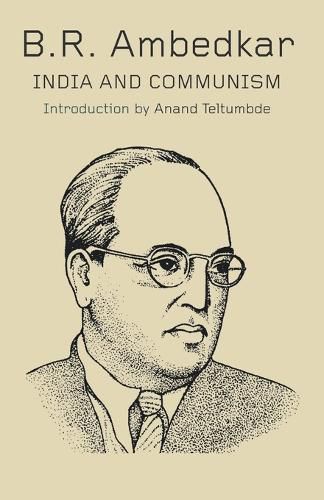Readings Newsletter
Become a Readings Member to make your shopping experience even easier.
Sign in or sign up for free!
You’re not far away from qualifying for FREE standard shipping within Australia
You’ve qualified for FREE standard shipping within Australia
The cart is loading…






This title is printed to order. This book may have been self-published. If so, we cannot guarantee the quality of the content. In the main most books will have gone through the editing process however some may not. We therefore suggest that you be aware of this before ordering this book. If in doubt check either the author or publisher’s details as we are unable to accept any returns unless they are faulty. Please contact us if you have any questions.
Those who think that Babasaheb Ambedkar was against Communism or Marxism are grossly prejudiced. Ambedkar’s relationship with Marxism was enigmatic. He defined himself as a socialist, not a Marxist. But he was impressed by the elan of the Marxist tradition. However, it is also true that he had serious reservations about accepting certain theoretical postulations of Marxism. Vested interests amongst the Dalits, however, pitch Ambedkar firmly as the enemy of Marxism. The fundamental category of class, through which Ambedkar viewed human society, has therefore been a complete taboo. Communists, on their part, have responded in kind, attacking him and his ideas. In the early 1950s, Ambedkar started work on a book he wanted to call India and Communism. The book was never finished. The present volume assembles what survives of this book, along with a section of another unfinished book, Can I be a Hindu? Anand Teltumbde, in his hard-hitting Introduction, charts the course of Ambedkar’s thinking on communism and Marxism, the historical reasons for the rift between him and the communists, and the basis on which a larger unity of Ambedkarites and communists can be forged. This unity, he argues, is an essential prerequisite for the emancipation of India’s poor and oppressed.
$9.00 standard shipping within Australia
FREE standard shipping within Australia for orders over $100.00
Express & International shipping calculated at checkout
This title is printed to order. This book may have been self-published. If so, we cannot guarantee the quality of the content. In the main most books will have gone through the editing process however some may not. We therefore suggest that you be aware of this before ordering this book. If in doubt check either the author or publisher’s details as we are unable to accept any returns unless they are faulty. Please contact us if you have any questions.
Those who think that Babasaheb Ambedkar was against Communism or Marxism are grossly prejudiced. Ambedkar’s relationship with Marxism was enigmatic. He defined himself as a socialist, not a Marxist. But he was impressed by the elan of the Marxist tradition. However, it is also true that he had serious reservations about accepting certain theoretical postulations of Marxism. Vested interests amongst the Dalits, however, pitch Ambedkar firmly as the enemy of Marxism. The fundamental category of class, through which Ambedkar viewed human society, has therefore been a complete taboo. Communists, on their part, have responded in kind, attacking him and his ideas. In the early 1950s, Ambedkar started work on a book he wanted to call India and Communism. The book was never finished. The present volume assembles what survives of this book, along with a section of another unfinished book, Can I be a Hindu? Anand Teltumbde, in his hard-hitting Introduction, charts the course of Ambedkar’s thinking on communism and Marxism, the historical reasons for the rift between him and the communists, and the basis on which a larger unity of Ambedkarites and communists can be forged. This unity, he argues, is an essential prerequisite for the emancipation of India’s poor and oppressed.